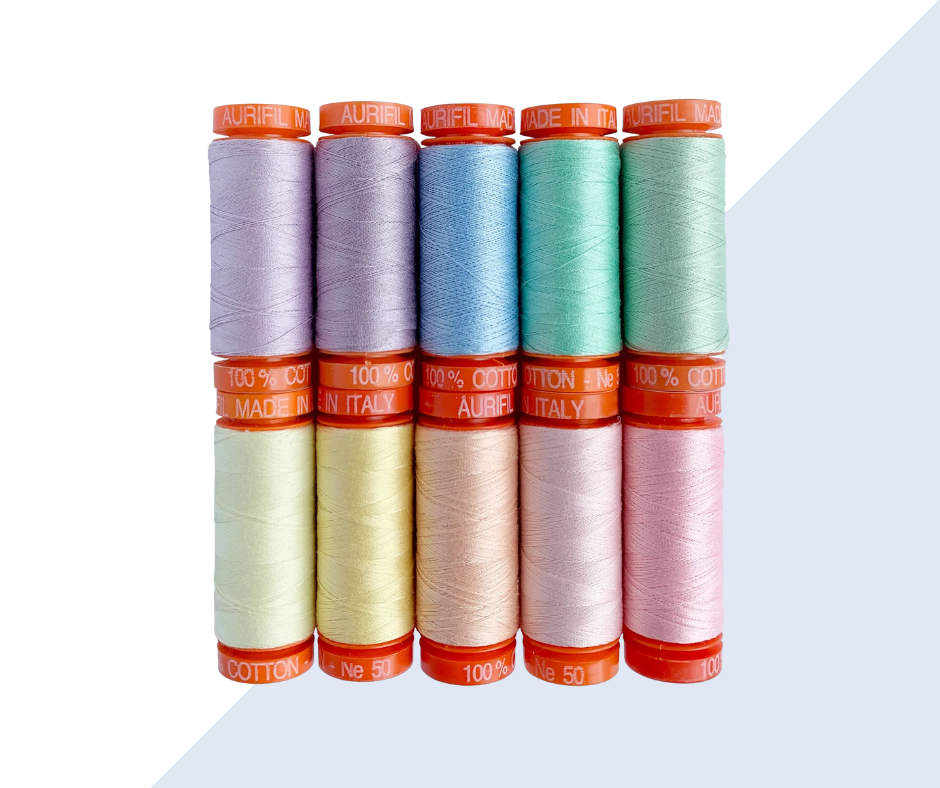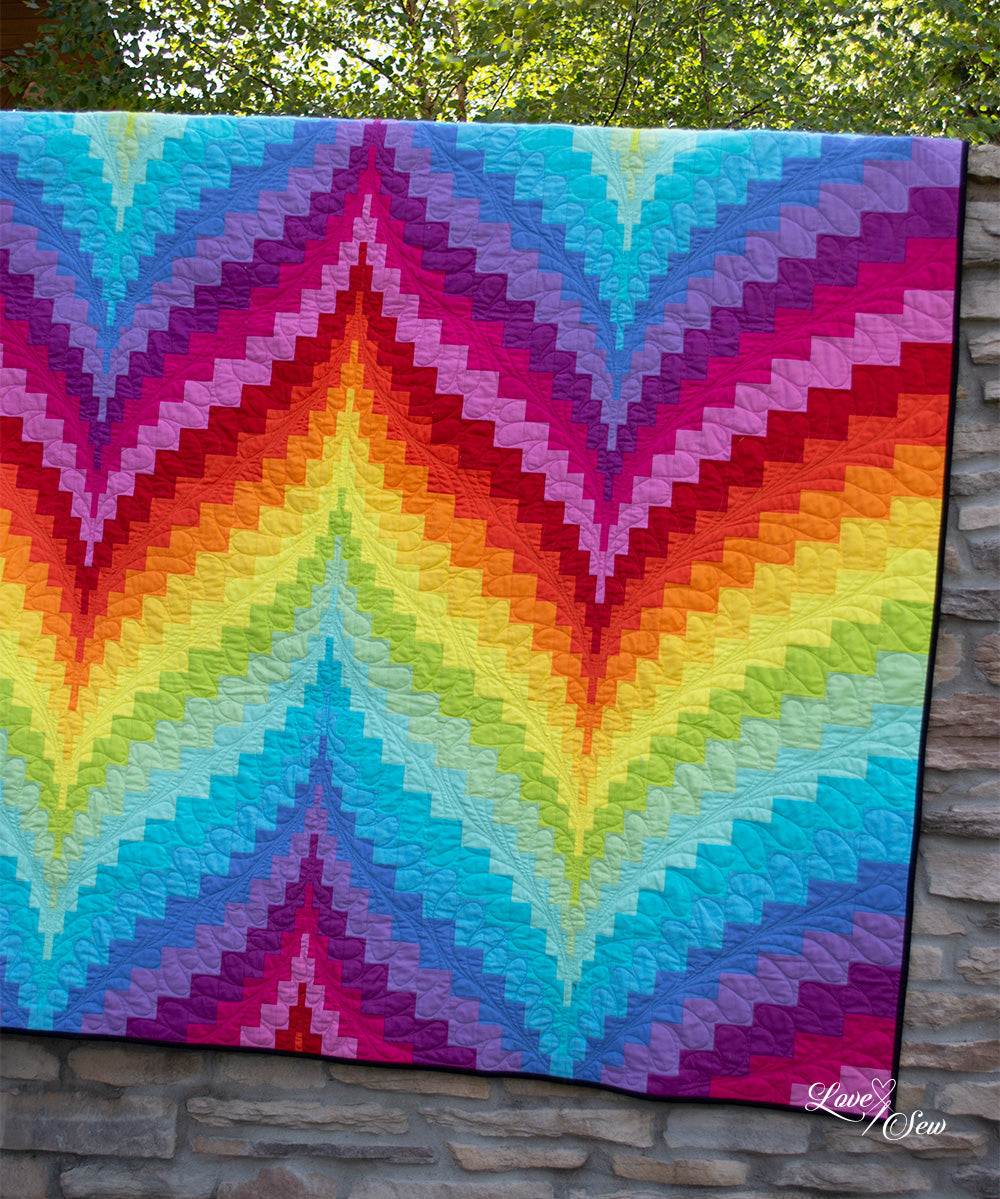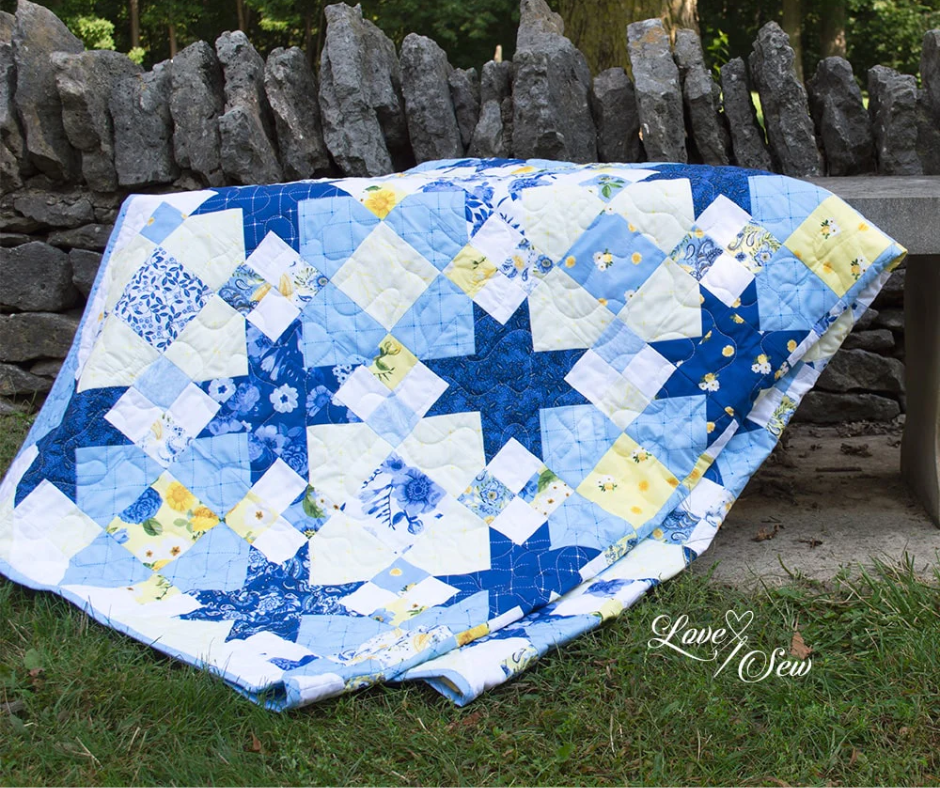After spending a lot of money on fabric for a quilt, it doesn’t make sense to piece it all together with cheap, poor-quality thread... We think choosing thread for piecing and quilting is a big deal because it affects the longevity and overall appearance of your finished quilt.
Now, not all quilters will agree on what thread is the best. Everyone tends to favor a particular brand. However, most quilters recommend using a 50wt thread that is 100% cotton. At Love Sew, our favorite brand is Aurifil (more on that later).
Types of Thread for Quilting
Choosing thread for a quilt can be confusing because the best choice really depends on the look you’re trying to achieve. There’s more to it than picking the perfect color. You also need to consider the weight of the thread and the fiber type.
Thread weight describes the thickness of your thread. The larger the number, the thinner the thread (Yes, I know that sounds backwards). When piecing fabric together, you want a thin thread so that it does not add bulk to your seams. 50wt thread works well for piecing. You can use thinner thread, but breakage can become an issue. If you want your thread to stand out more for quilting, go up to a 40wt thread.
Quilting thread is typically made from cotton or polyester. Each has advantages and disadvantages for quilting. Cotton thread is the ideal choice because it matches the fibers of your fabric and reacts the same way — it does not stretch, and it shrinks when washed. The matte look of cotton thread also blends into your fabric better. Polyester thread is more durable and less expensive, but the slight sheen makes it more visible. This is good if you’re trying to add contrast to your quilt, but bad if you want thread that blends into your fabric.
Cotton thread seems to be the more popular choice for quilting. Of course, it’s important to choose a high-quality brand because that makes a difference, too.
All About 50wt Aurifil Thread

Our favorite thread for quilting is 50wt Aurifil because it is ultra-fine, strong, and virtually lint free. It is made in Milan, Italy, from 100% long staple, mercerized cotton originating in the MAKO region of Egypt. It is HIGH QUALITY! When you start using Aurifil thread, you’ll immediately notice the difference.
Here’s Why We Love Aurifil Thread for Quilting:
- Lint-Free Design: Unlike other cotton threads, Aurifil 50wt thread is made from long-staple cotton. This reduces the amount of fuzz you see on the thread when you look close. Aurifil thread is super smooth and it won’t shed a lot of lint that can gunk up your sewing machine.
- Thinness: Since Aurifil 50wt thread is so thin, your seams will lay flatter after pressing. That means your ¼” seam allowance will also be more accurate. This is the biggest draw for quilters. An added bonus is that the thread is so thin that you can wind a lot more of it on a bobbin.
- Strength: Even though Aurifil 50wt thread is thin, it is still very strong. It is a 2-ply thread that is mercerized to increase its strength. You can find thinner thread, but you often lose strength at that point.
- Appearance: Aurifil 50wt thread comes in an array of colors so you can always find the shade you need. The mercerization process also adds luster. Quilters often buy a large spool of white Aurifil thread for piecing. Love Sew carries a cone with 6,452 yards!
Until you’ve used 50wt Aurifil thread, you don’t know how much of a difference it can make in your quilt. Don’t buy cheap thread to save money. You’ll end up paying for it in thread breakage and lint build up.
Have you ever tried Aurifil 50wt thread? What is your go-to thread for quilting? Let us know in the comments below.



7 comments
Katherine Parker
How many yards on a regular spool?
Katherine Parker
How many yards on a regular spool?
frances
I have yet to use Aurifill; REQUEST: can you post about Aurifill thread for jeans on later posting.
Karen Champion
Once you try it it’s hard to go back. I wish it wasn’t so expensive though.
Denita Kionka
I am using my FIRST spool of Aurifil thread and I’m a believer! It makes such a positive difference that I don’t want to use anything else.
Leave a comment
This site is protected by hCaptcha and the hCaptcha Privacy Policy and Terms of Service apply.